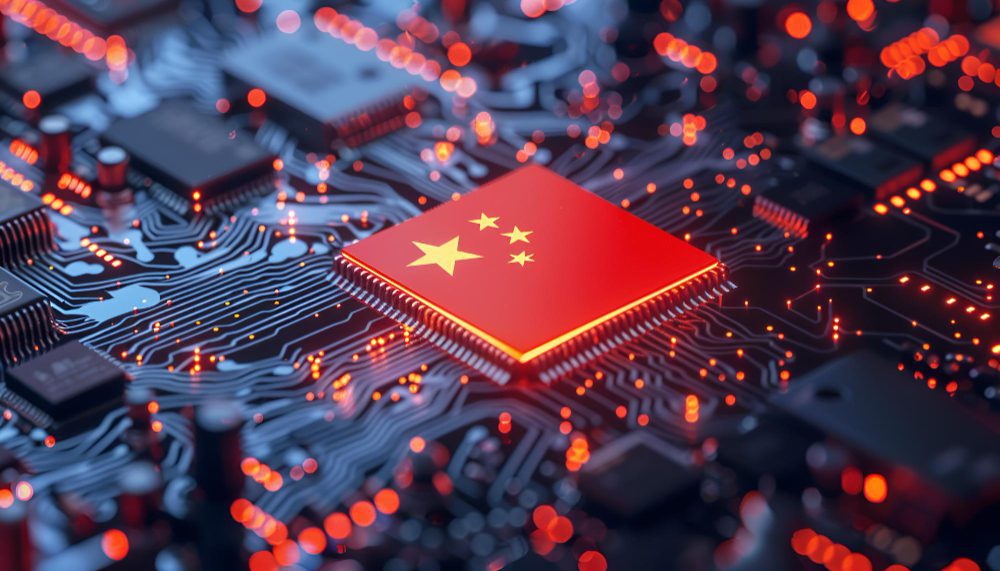Executive Summary
The Story So Far
Why This Matters
Who Thinks What?
China’s Ministry of Commerce has launched an anti-discrimination investigation into U.S. trade policy regarding semiconductor chips, alongside a separate probe into alleged dumping of certain U.S. analog chips. These actions were announced Saturday, just a day before a new round of high-stakes U.S.-China trade talks commenced in Madrid, Spain, highlighting ongoing tensions in the technology sector.
Investigations into U.S. Chip Policies
The first investigation will scrutinize whether Washington’s policies on chip trade have discriminated against Chinese companies. The second probe focuses on suspected dumping of U.S. analog chips, which are commonly used in various devices such as hearing aids, Wi-Fi routers, and temperature sensors.
In a statement, the ministry asserted that the United States has imposed numerous restrictions on China’s chip industry in recent years, including trade discrimination investigations and export controls. China views these “protectionist” measures as discriminatory and aimed at curbing the development of its high-tech industries, particularly in advanced computing and artificial intelligence.
Upcoming Trade Dialogue in Madrid
A Chinese delegation, led by Vice Premier He Lifeng, is scheduled to engage in dialogue with U.S. counterparts from September 14-17 in Madrid. The agenda for these talks includes discussions on U.S. tariffs, the “abuse” of export controls, and the future of the popular short-video app TikTok.
On Saturday, the commerce ministry questioned the timing of recent U.S. policy decisions, stating, “What is the U.S.’s intention in imposing sanctions on Chinese companies at this time?” The ministry urged the U.S. to “immediately correct its erroneous practices” and vowed that China would take “necessary measures to resolutely safeguard the legitimate rights and interests of Chinese companies.”
Recent U.S. Actions
Just one day prior to China’s announcement, the United States added 32 entities to its commerce department’s restricted trade list. Twenty-three of these entities are based in China, including two firms accused of acquiring U.S. chipmaking equipment for China’s leading chipmaker, SMIC.
Broader Trade Context and TikTok
The upcoming talks in Spain mark the fourth major in-person meeting between the two economic powers this year. These dialogues are part of an ongoing effort to maintain a trade truce that has previously led to reduced retaliatory tariffs and restored the flow of Chinese rare earth minerals to the United States.
Following earlier meetings in Geneva and London, both sides largely agreed in Stockholm in late July to extend a tariff pause for another 90 days. President Donald Trump approved this extension on August 12, setting its expiration date for November 10.
TikTok, owned by ByteDance, remains a significant point of contention. The app faces a potential ban in the U.S. unless it transitions to U.S. ownership. President Trump has extended the deadline for TikTok to divest its U.S. assets until September 17. U.S. lawmakers have expressed concerns that TikTok’s U.S. user data could potentially be accessed by the Chinese government.
Addressing these concerns, China’s official People’s Daily stated in an article on Saturday that the Chinese government “attaches great importance to data privacy and security and has never and will never require companies or individuals to collect or provide data located in foreign countries for the Chinese government in violation of local laws.” The newspaper reiterated China’s readiness to take necessary measures if the United States continues to undermine the legitimate interests of Chinese companies.
Navigating Tech and Trade Tensions
The simultaneous launch of China’s anti-discrimination and anti-dumping investigations, coupled with recent U.S. export control expansions, underscores the deepening technological and trade friction between Beijing and Washington. These developments set a challenging backdrop for the ongoing trade talks in Madrid, where both sides aim to manage their economic relationship amidst strategic competition over critical technologies and data security.








